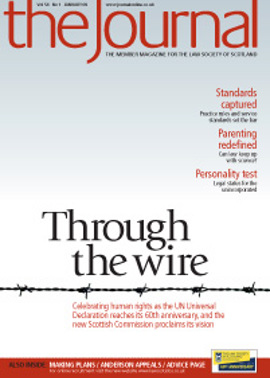Packed and ready

“Pre-packs”, meaning sales out of an insolvency process which have largely been agreed (at least in principle) before a formal insolvency appointment, are loaded with controversy. Some of the issues which may arise have recently been examined by the court in Re Delberry Ltd [2008] EWHC 925(Ch).
The liquidator (“L”) of Delberry (“D”) applied under s 236 of the Insolvency Act 1986 for an order requiring administrative receivers (“R”) to produce documents in their possession. R had been appointed by the debenture holder (“B”) to carry out a review of D’s business and had been involved in negotiations concerning a possible sale of D’s assets. The sale was completed less than a week after R were appointed by B.
Proper application?
Section 36 of the 1986 Act provides that the court may on an application by the liquidator of a company, fix the amount to be paid by way of remuneration to receivers, and where the receivers have been paid or have retained an amount for their remuneration before the making of the order, the court’s power extends to requiring them to account for the excess, if any, over the amount fixed by the court.
Section 236 provides various powers to the court whereby an insolvency officeholder may make enquiries in relation to dealings with the company or any of its property, or concerning the business affairs of the company.
In Delberry, L wished to have R’s fees assessed pursuant to s 36, in so far as R claimed £97,000 and solicitors’ and agents’ disbursements of £80,000. Separately, pursuant to a s 236 application, L sought production of (i) time records for pre-receivership work relating to D; (ii) correspondence with B relating to R’s remuneration and disbursements; and (iii) all documents relating to R’s strategy and planning, including the decision not to trade the business after their appointment. R contended that (i) pre-receivership work carried out at B’s request and paid for by B did not relate to D or its business; (ii) L did not reasonably require the documents and the application was an abuse of process designed to bolster a claim against R for breach of duty; and (iii) L should not be allowed to use the application to obtain an insight into the strategic considerations for receivership.
Relevant information
The application was granted.
The court held that who paid for the work could not affect the categorisation of the work. The nature of work done pre-appointment could clearly be relevant in assessing the extent of work required post-appointment. Clearly the work done related to D’s business affairs, and the fact that it was paid for by B did not change its character.
The information sought was relevant to the remuneration issue; the fact that it might also assist L in assessing whether R had discharged their substantive duties was not oppressive. Finally, where the receivership was at an end, there was no reason why L should not see documents relating to strategy and planning which would allow L to consider the pre-liquidation conduct of D’s affairs.
Cause for concern
This is an instructive case, and it is tempting to leap to conclusions on the facts set out in the judgment. That may well have been what L was doing. The appointing chargeholder was billed £25,000 for the pre-appointment advice. The appointment was made on a Thursday and the sale was concluded the following Tuesday. Although no indication is given of what period the receivers’ fee covered, and what other work they may have done, a fee of £97,000, together with solicitors’ fees of £60,000 and agents’ fees of £20,000, appears unbalanced by comparison.
The judge also narrated that one of the receivers had apparently spent some 38.5 hours dealing with the sale of the business, and continued: “There is some evidence that [he] was first seen at Delberry’s premises following his appointment on [Monday] after the weekend following his appointment, having returned from holiday that morning... the sale taking place on the Tuesday. There are other matters which the liquidator considers give rise to concern.”
Concerns over the perception of pre-packs have led to the issue of a formal statement of insolvency practice (no 16) dealing with these, which was issued in November 2008.
In this issue
- Public law in Scotland
- Harmony in conflict management
- Tapping Reeve and his legacy
- Busy times at 60
- Living wills - why?
- Forward by the rights
- A cornerstone of rights
- Welcome for rejections takeup
- Sins of omission
- A time to buy?
- Parenthood reborn
- Persons unknown
- Front of the class
- Setting the standards
- Client service: the standards
- Judicial appointments: how you can take part
- ABS - the next phase
- Third parties and premature complaints
- Planning to perform
- Manual for the mind
- Computing on tap - or money down the drain?
- When resolution is not enough
- Ask Ash
- Making up lost time?
- Don't get caught short by transfer traps
- Collaboration: a new dimension
- Packed and ready
- Regulator on a roll
- Scottish Solicitors' Discipline Tribunal
- Website review
- Book reviews
- Medicines: the wrong cure
- Fraud alert! (and a cautionary tale)






